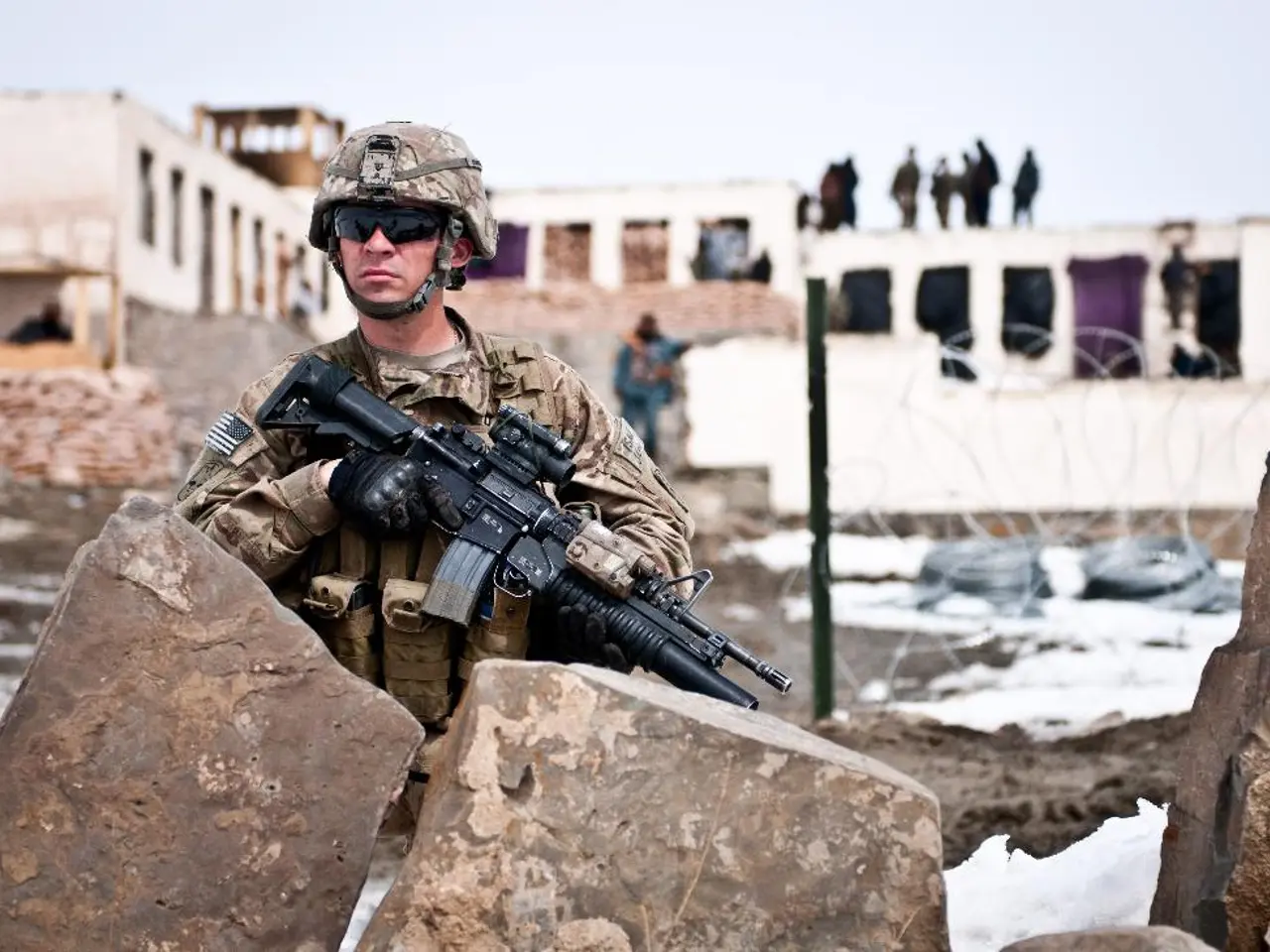Take Down the Modern-Day Hitler? Can Israel Legally Kill Khamenei? A Legal Perspective
Can the assassination of Khamenei by Israel be justified under international law?
The Iran-Israel conflict is heating up, with the Israeli Defense Minister, Israel Katz, labeling Iran's Supreme Leader, Ayatollah Khamenei, as the "modern-day Hitler." But can Israel legitimately take out Khamenei? Here's a breakdown of international law perspectives on the matter.
In an interview, Netanyahu stated that eliminating Khamenei would "end" the conflict between Israel and Iran. However, according to Alexander Wentker, a researcher at the Heidelberg Max Planck Institute for Foreign and International Criminal Law, the legality of such an action is highly contentious.
Humanitarian International Law Perspective
If we consider the rules of humanitarian international law in the context of interstate armed conflicts, Wentker suggests that Israel could theoretically justify targeting Khamenei as a military subject since he is reportedly the supreme commander of Iran's armed forces.
However, this is just one aspect of the analysis. The UN Charter and customary international law pose additional challenges.
The UN Charter and Use of Force
The UN Charter prohibits the use of force against the territorial integrity or political independence of any state unless it's in self-defense or authorized by the Security Council. Wentker points out that Israel might find it challenging to justify using force against Iran without Security Council authorization or evidence of an immediate armed attack.
Targeting State heads
If we examine the example of Russia and Ukraine, it becomes clear that the assassination of heads of state is generally permissible under humanitarian international law if both states are involved in an armed conflict, and the head of state also commands the army. However, obtaining evidence to support such a move is often problematic and can be subject to abuse.
The Right to Life
While the right to life is recognized in international law, it can be overridden if it aligns with international humanitarian law provisions. As such, the right to life wouldn't be violated in this case if the assassination of Khamenei aligns with international humanitarian law.
Protection of Civilians
In circumstances where the assassination of Khamenei results in civilian casualties, Israel must adhere to the principle of proportionality. This principle necessitates weighing any potential casualties against the military advantage sought.
Accountability
If Khamenei is killed without self-defense, Israel may not face trial before the International Court of Justice as it withdrew its acceptance of the court's jurisdiction in 1985. However, Israel's actions could potentially be investigated under international law for violations of the prohibition of force.
Sources:
- ntv.de, gut/dpa
- Wentker, Alexander, "The Legal Status of Targeted Killings in Israel," in: Internationale Zeitschrift für Vergleichende Strafrechtswissenschaft, Band 43, 2012, S. 205-212
- "Targeted Killings," International Committee of the Red Cross, 2015
- Becker, Oona A., "Justifying Killing, Capturing, or Detaining Individuals Acting Against the United States or in Aid of Terrorist Activities," American Journal of International Law, 101, 2007, S. 351-382
The European Union, recognizing the UN Charter as a fundamental guide for international relations, may find the potential action by Israel against Iran's Supreme Leader, Ayatollah Khamenei, a contentious issue, given the UN Charter's prohibition on the use of force unless it's in self-defense or authorized by the Security Council.
In the broader context of international politics and general news, the topic of war-and-conflicts is inextricably linked to the Israeli-Iran conflict and the legal implications of targeting state heads, as seen in this discussion about the potential assassination of Khamenei.




